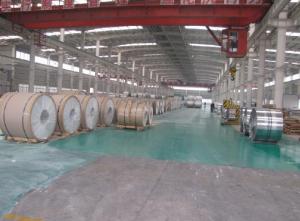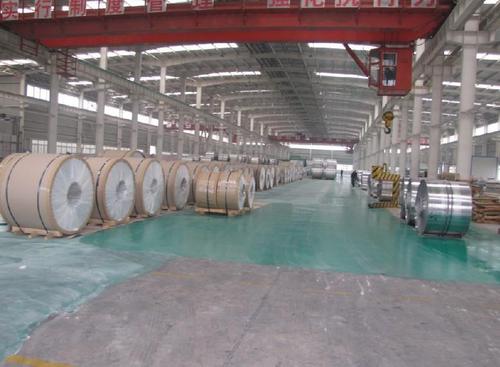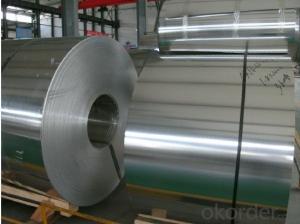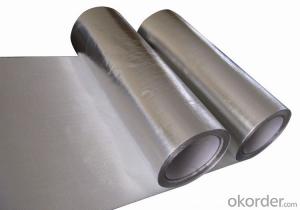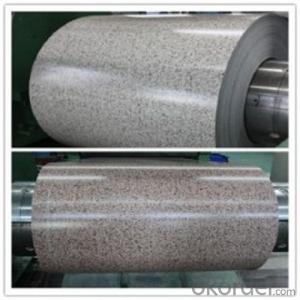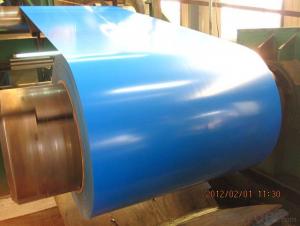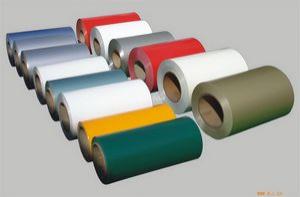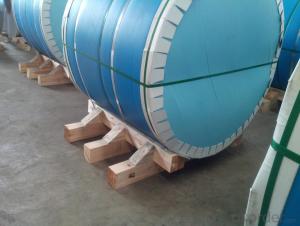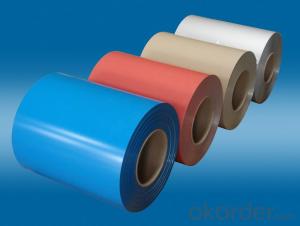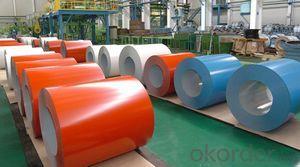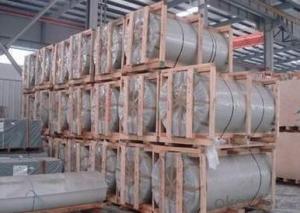Tru Timber AA5052 Aluminum Coil
- Loading Port:
- China Main Port
- Payment Terms:
- TT or LC
- Min Order Qty:
- -
- Supply Capability:
- -
OKorder Service Pledge
OKorder Financial Service
You Might Also Like
1、 Structure of Aluminium Coil Description
Disposable aluminum Coil air food boxes is able to endure high low temperature (20-250) molecular structure stability don't change packing materials. Compared with the current widespread use of plastic snack box can only carry temperature range is - 16 to 85, it can take food from refrigerator to oven to table, and do not need to change container.
2、Main Features of the Aluminium Coil
Alloy: 5052(AlMg2.5)
Temper: O,H12,H22,H32,H14,H24,H34,H16,H26,H36,H18,H38,F
CHEMICAL COMPOSITION LIMITS (%)
Silicon | Iron | Copper | Manganese | Magnesium | Chromium | Nickel | Zinc | Titanium | Others | Total | Aluminum |
0.25 | 0.4 | 0.10 | 0.10 | 2.2-2.8 | 0.15-0.35 | 0.10 | 0.05 | 0.15 | Remainder |
Main application: Magnesium gives this alloy its enhanced corrosion resistance, workability, strength and weldability. Typical uses include aircraft fuel tanks, container body, truck/trailer body, electronic mounting plates and panels, fan blades, refrigeration liners, storm shutters and utensils.
Alloy | Temper | Thickness(mm) | Tensile Strength(MPa) | Elg%(50mm) |
5052 | O | >0.5-0.8 >0.8-1.3 >1.3-6.5 >6.5-10.0 | 170-215 | ≥15 ≥17 ≥19 ≥18 |
H12/H22/H32 | >0.5-1.3 >1.3-4.5 | 215-265 | ≥5 ≥7 | |
H14/H24/H34 | >0.5-0.8 >0.8-1.3 >1.3-4.5 | 235-285 | ≥3 ≥4 ≥6 | |
H16/H26/H36 | >0.5-0.8 >0.8-4.5 | 255-305 | ≥3 ≥4 | |
H18/H38 | >0.5-0.8 >0.8-4.5 | ≥270 | ≥3 ≥4 | |
H112 | >4.5-6.5 | ≥195 | ≥9 ≥7 | |
>6.5-12.5 | ≥195 | |||
>12.5-40.0 | ≥175 | |||
>40.0-80.0 | ≥175 |
3、 Aluminium Coil Images
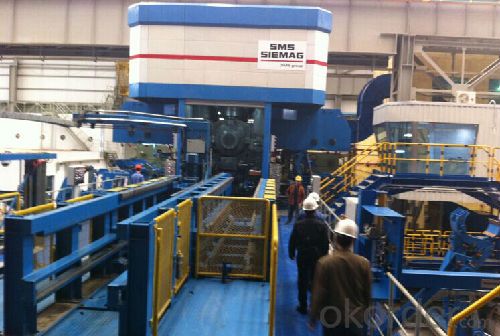
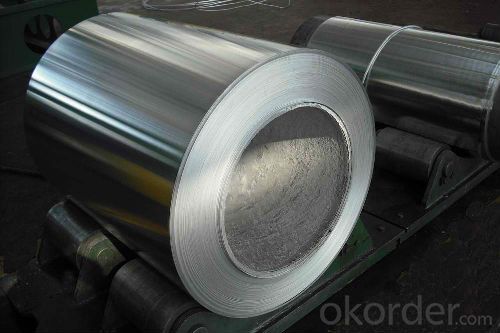
4、Aluminium Coil Specification
Alloy: | A1100, A3003, A3004, A5005, A8011 etc. |
Temper | H14, H16, H18, H24 etc. |
Thickness | From 0.024mm to 1.2mm |
Width | From 56mm to 1600mm |
Color | Customized, you can choose from our color chart, or we adjust the special color as the samples you offer. |
Coating | PE coating, PVDF coating, Back coating |
Coating thickness: | 0.18mm for PE coating, 0.25mm for PVDF coating |
5、FAQ of Aluminium Coil
a. What is monthly capacity
---CNBM is one stated own company and our monthly capacity is about 2000tons.
b. Now which countries do you export your goods?
----Now we export to South East Asia,Africa, North America,South America ect.
- Q: Can aluminum coils be used in food processing industries?
- Aluminum coils find applications in the food processing industry. This is because aluminum possesses several advantageous properties that make it a popular choice in this field. It is a lightweight and flexible material with excellent thermal conductivity. These characteristics make it ideal for various uses such as refrigeration, heat exchangers, and ovens in food processing. Moreover, aluminum is non-toxic, resistant to corrosion, and does not affect the taste or odor of the food being processed. Therefore, it is a safe and hygienic option for food processing equipment. Additionally, aluminum coils are easy to clean and maintain, ensuring the highest standards of cleanliness and food safety are upheld. Consequently, due to their outstanding performance and suitability for food-related applications, aluminum coils are widely accepted and utilized in the food processing industry.
- Q: What’s the standard of tensile strength and ductility of aluminum coil 3003?
- Detailed description can help resolve problems quickly. Performance and status is a related. As aluminum coil is usually semi-hard, the tensile strength is greater than or equals 150, ductility is greater than or equals 12.
- Q: Are aluminum coils prone to corrosion?
- Yes, aluminum coils are prone to corrosion. Aluminum is a reactive metal that tends to oxidize when exposed to oxygen and moisture, leading to the formation of a layer of corrosion on the surface of the coil. However, this can be mitigated by applying protective coatings or using alloys that are more resistant to corrosion.
- Q: Are aluminum coils suitable for solar panel frames?
- Yes, aluminum coils are suitable for solar panel frames. Aluminum is lightweight, corrosion-resistant, and has excellent thermal conductivity, making it an ideal material for solar panel frames. It offers durability, easy installation, and efficient heat dissipation, ensuring the longevity and optimal performance of solar panels.
- Q: Can aluminum coils be used in the production of cryogenic storage tanks?
- Yes, aluminum coils can be used in the production of cryogenic storage tanks.
- Q: Can aluminum coils be used in food packaging?
- Yes, aluminum coils can be used in food packaging. Aluminum is a popular choice for food packaging due to its excellent barrier properties, lightweight nature, and ability to maintain the freshness and quality of food products. It is widely used in various forms, including coils, for packaging food items like beverages, snacks, and canned goods.
- Q: How do aluminum coils contribute to energy efficiency in buildings?
- Aluminum coils play a crucial role in enhancing energy efficiency in buildings. Firstly, aluminum is a highly conductive material, allowing for efficient heat transfer. This characteristic is essential in HVAC (Heating, Ventilation, and Air Conditioning) systems, where aluminum coils are commonly used. These coils facilitate the transfer of heat between the indoor and outdoor units, enabling effective temperature regulation and reducing energy consumption. Moreover, aluminum coils are lightweight, which makes them easier to handle and install. This not only saves time and labor costs but also reduces the overall weight of the HVAC system, leading to lower energy requirements for operation. Additionally, the lightweight nature of aluminum coils allows for the design of compact systems, saving valuable space in buildings. Furthermore, aluminum is highly resistant to corrosion, ensuring the longevity and durability of the coils. This resistance to corrosion is particularly crucial in areas with high humidity or exposure to harsh weather conditions. By maintaining their effectiveness over time, aluminum coils minimize the need for frequent replacements, reducing energy consumption associated with manufacturing and installation processes. Another significant benefit of aluminum coils is their recyclability. Aluminum is one of the most recycled materials globally, with a high recycling rate and minimal loss of quality during the process. By using aluminum coils, buildings contribute to a more sustainable and environmentally friendly approach, as the material can be recycled repeatedly without compromising its performance. Moreover, the recycling process requires significantly less energy compared to primary aluminum production, reducing greenhouse gas emissions. In conclusion, aluminum coils contribute to energy efficiency in buildings through their high conductivity, lightweight nature, corrosion resistance, and recyclability. By facilitating efficient heat transfer, reducing energy consumption, and promoting sustainability, aluminum coils play a vital role in enhancing the energy efficiency of HVAC systems and overall building performance.
- Q: Are aluminum coils suitable for outdoor applications?
- Yes, aluminum coils are suitable for outdoor applications. Aluminum has excellent corrosion resistance and can withstand exposure to various weather conditions, making it a popular choice for outdoor applications such as air conditioning units, heat exchangers, and refrigeration systems.
- Q: How do aluminum coils contribute to thermal insulation in buildings?
- There are several ways in which aluminum coils contribute to thermal insulation in buildings. Firstly, due to its excellent heat conductivity, aluminum can effectively transfer heat away from the building's interior. This allows for efficient cooling during hot summer months, as the aluminum coils can absorb and release the heat, preventing it from entering the building. Secondly, aluminum coils can be integrated into HVAC systems to control the temperature inside the building. By circulating cool air through the coils, the aluminum helps maintain a comfortable temperature, reducing the need for excessive energy consumption. Additionally, aluminum coils can be used as part of a radiant barrier insulation system. This involves placing reflective aluminum foil on the inside of walls, roofs, or attics, which reflects radiant heat back towards its source. This prevents heat transfer into the building, keeping it cooler in the summer and reducing the need for air conditioning. Moreover, aluminum coils are lightweight and easy to install, making them a cost-effective choice for thermal insulation in buildings. They can be easily shaped and fitted into various spaces, ensuring optimal coverage and maximum thermal efficiency. In conclusion, aluminum coils are essential for thermal insulation as they effectively dissipate heat, regulate temperature, and reflect radiant heat. Their versatility and efficiency make them a valuable component in creating energy-efficient and comfortable environments within buildings.
- Q: Can aluminum coils be painted or coated?
- Yes, aluminum coils can be painted or coated. Aluminum is a versatile material that can be painted or coated with various finishes to enhance its appearance and protect it from corrosion. The process of painting or coating aluminum coils typically involves cleaning and preparing the surface, applying a primer, and then applying the desired paint or coating. The type of paint or coating used will depend on the desired finish and the intended application of the aluminum coil.
Send your message to us
Tru Timber AA5052 Aluminum Coil
- Loading Port:
- China Main Port
- Payment Terms:
- TT or LC
- Min Order Qty:
- -
- Supply Capability:
- -
OKorder Service Pledge
OKorder Financial Service
Similar products
Hot products
Hot Searches
Related keywords
